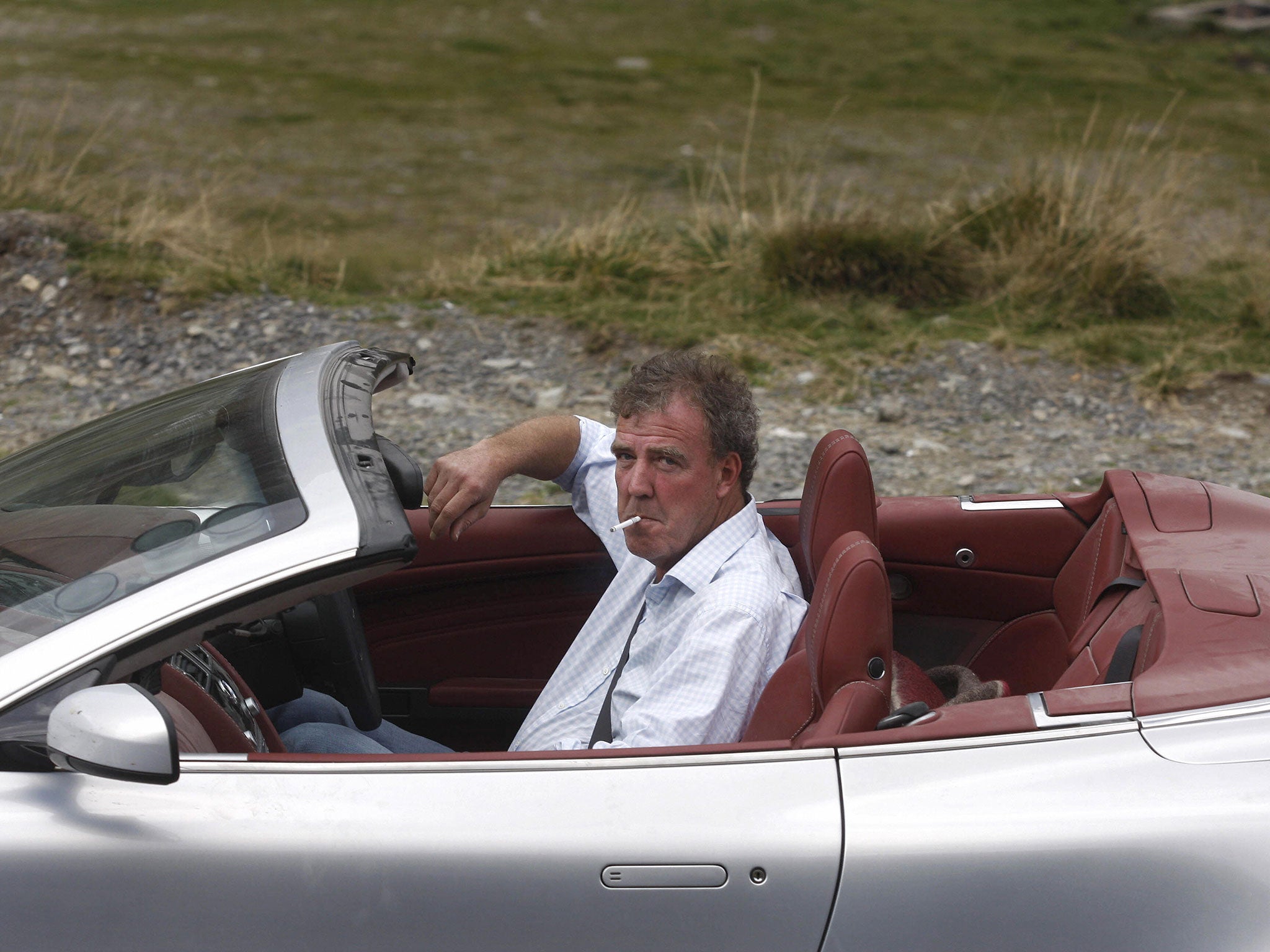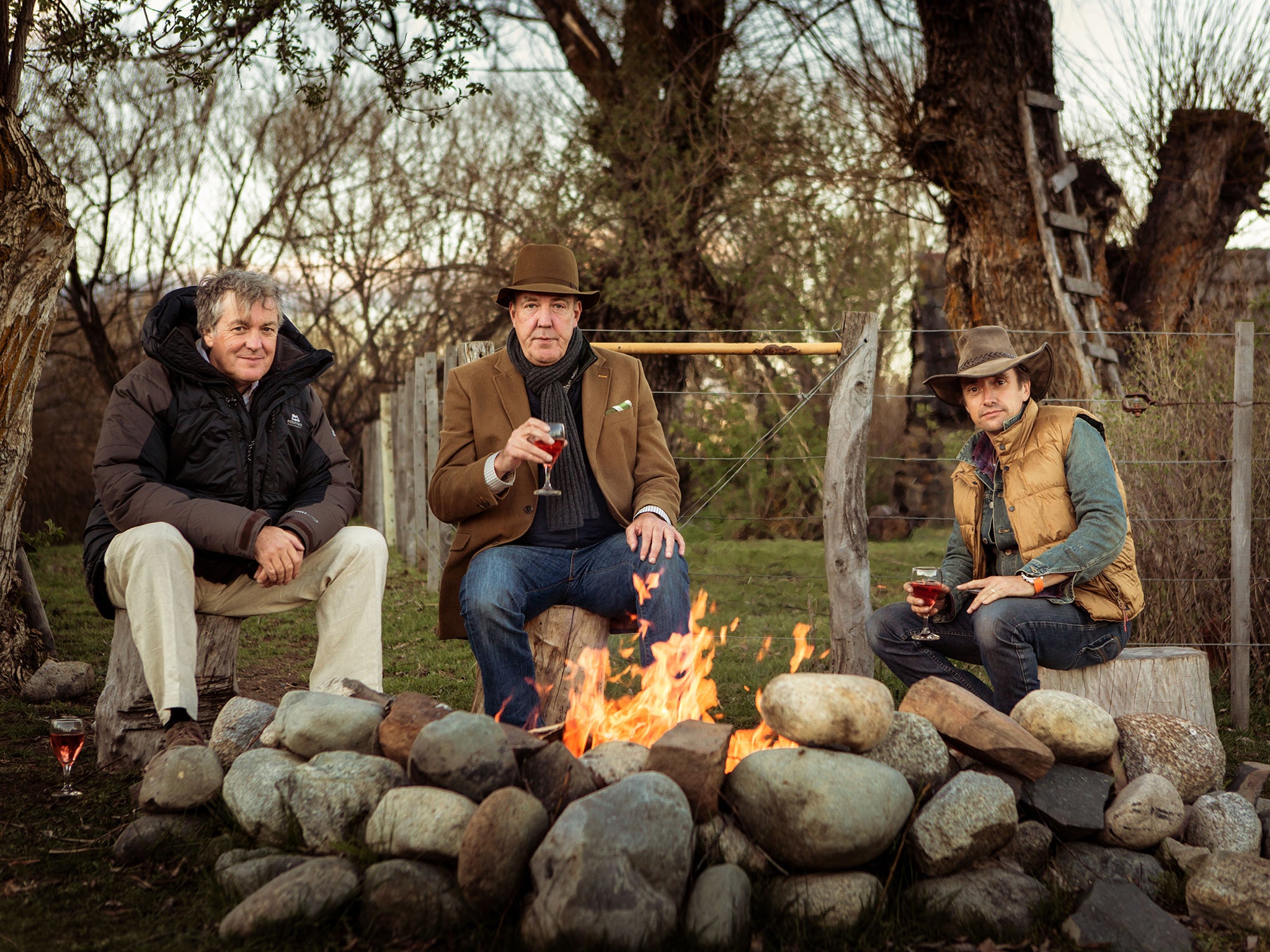Top Gear wanted to set fire to Clarkson's Porsche to make escape from Argentina more 'dramatic'
Argentina’s ambassador to the UK writes to chair of the BBC Trust

Your support helps us to tell the story
From reproductive rights to climate change to Big Tech, The Independent is on the ground when the story is developing. Whether it's investigating the financials of Elon Musk's pro-Trump PAC or producing our latest documentary, 'The A Word', which shines a light on the American women fighting for reproductive rights, we know how important it is to parse out the facts from the messaging.
At such a critical moment in US history, we need reporters on the ground. Your donation allows us to keep sending journalists to speak to both sides of the story.
The Independent is trusted by Americans across the entire political spectrum. And unlike many other quality news outlets, we choose not to lock Americans out of our reporting and analysis with paywalls. We believe quality journalism should be available to everyone, paid for by those who can afford it.
Your support makes all the difference.Jeremy Clarkson’s Top Gear team wanted to set fire to their sports cars after a mob of protesters forced the crew to abandon filming in Argentina, the official police report into the incident claims.
Footage of burnt-out cars might have been used for “dramatic effect”, and could have given the impression that Clarkson and his colleagues had been forced to flee torched vehicles, Argentine diplomats suggested.
Alicia Castro, Argentina’s ambassador to the UK, has written to Rona Fairhead, chair of the BBC Trust, to demand that the BBC takes further action against the presenter after new details emerged about the controversial episode, which will be shown this Christmas.
The report, by the deputy head of the provincial police in Tierra del Fuego, and seen by The Independent, confirms that the number plate of Clarkson’s Porsche, H982 FKL, considered to be a taunting reference to the 1982 Falklands conflict by angry locals, was changed before the BBC team was forced to flee.

The Argentine embassy in London believes this undermines Clarkson’s claim that the use of the H982 FKL plate was a “coincidence”, since the team had brought alternatives. Ambassador Castro called the H982 plate “malicious mockery” of those who fought in the war.
The police report details the dangerous pursuit which ensued when a group of Falklands veterans told the Top Gear team that their presence was unwelcome at their hotel in Cerro Castor, the world’s southernmost ski resort, in Tierra del Fuego.
The team tried to make their escape by road to Chile but a lorry “started moving towards the road in such a way as to bring about a collision with the Top Gear crew’s first vehicle”, the report said. Demonstrators “began to throw all manner of objects at the vehicles”.
Police acted to prevent the lorry “manoeuvring in an attempt to crash into the crew’s vehicles”. A Top Gear driver suffered cuts from shattered glass windows.
Mr Clarkson’s grey Porsche 928, now with the plate H1 VAE, escaped unharmed along with the Lotus Esprit and Ford Mustang driven by co-presenters, Richard Hammond and James May.
The police report says that on arriving at the San Pablo road the “Top Gear crew took the decision to leave the sports cars behind and set them on fire”. Police told the crew they would not be allowed to burn the cars and told them to leave with them. The crew refused, the report said. Police impounded the cars, which the BBC is currently seeking to retrieve from the Argentine customs house in Rio Grande. The Top Gear team was forced to take “an alternative route to the Chilean border (the Radman crossing)”, under police supervision because protesters had blocked access to the motorway.
In a letter to the BBC Executive Board, ambassador Castro said the police report, which details an extensive security operation put in place to protect the Top Gear team, “gives the lie to Mr Clarkson’s remarks that the Top Gear teams was ‘ambushed’ by the provincial authorities and ‘sent packing’ in order to win favour in an upcoming election”.
The supposed intention to burn the sports cars was “alarming and illegal”, she says. “Why would the team possibly want to burn such expensive BBC property?” asked the ambassador. Diplomats believe it might have been “for dramatic effect”.
However, a Top Gear source said the suggestion that the crew intended to burn the cars was “nonsense”. They already had enough dramatic material without taking further risks and their main objective was to ditch the cars and leave without further trouble, they said.
In her letter to Ms Fairhead, ambassador Castro writes: “We believe Mr Clarkson’s behaviour fell well below the BBC’s editorial values and standards.” The BBC has told the ambassador that it has seen no evidence to contradict Mr Clarkson’s explanation that the offending plate was a “coincidence”.
Join our commenting forum
Join thought-provoking conversations, follow other Independent readers and see their replies
Comments